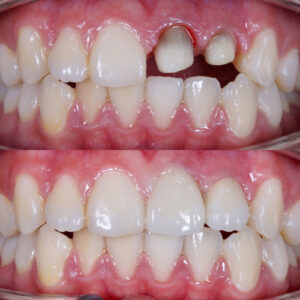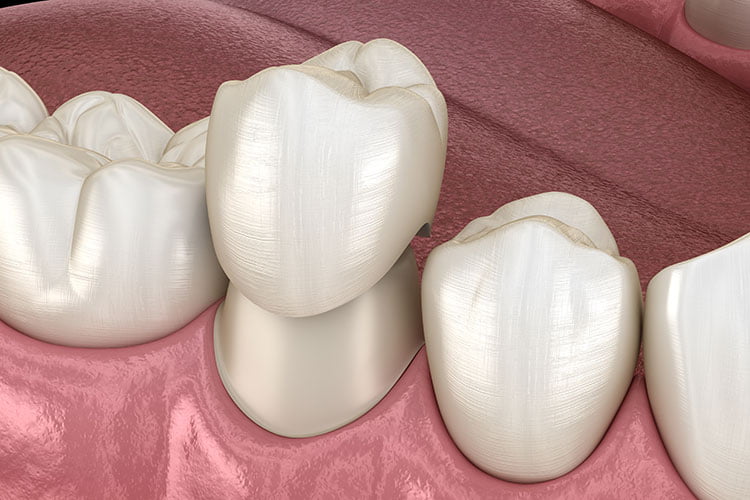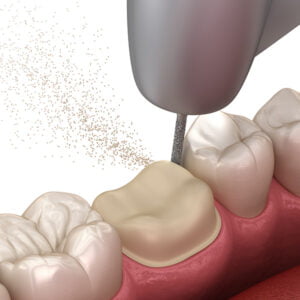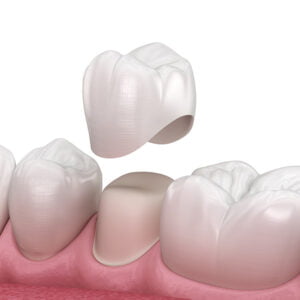
Understanding Dental Crowns: Benefits, Procedure, and Types
What is a Dental Crown? A dental crown is a prosthetic restoration that covers and protects a damaged or weakened tooth. It is custom-made to
We are close to your home, your child’s school, or your place of employment. Find a location near you.
P: 608-833-1889
Our team of experienced dentists are dedicated to providing outstanding dental healthcare to the patients of all ages.
Family Dentists
Orthodontists
Family Dentists
Family Dentists
Orthodontists
Periodontists
Family Dentists
Orthodontists
Family Dentists
Periodontists
Family Dentists
Family Dentists
Periodontists
Orthodontists
Endodontists
Click on the categories to learn more about the services we offer.
Our clinics across Madison offer you options for dental crown procedures.
Have you ever found yourself favoring one side or the other while chewing? Have you ever felt embarrassed to smile? Or have you had sensitivity in a particular tooth that just won’t go away? These are just some of the situations where a crown could be the solution to improving your oral health and your smile. Talk with your Dental Health Associates of Madison dentist to see if a crown may be right for you. A dental crown is a tooth-shaped cap that fits over one of your existing teeth or a dental implant. Crowns are custom made to look and feel just like one of your natural teeth. Your Dental Health Associates dentist may recommend a crown to:

With the advances of modern dentistry, there are now many materials used to make crowns. There are three general categories of dental crowns, including all ceramic, porcelain fused to metal, or all metal. No type of crown is superior in all respects, with each having advantages and drawbacks. Your Dental Health Associates of Madison dentist will help you decide which material is best for you.
With superior esthetics, an all porcelain crown can most easily be made to blend in seamlessly with the rest of your teeth. Historically, all ceramic crowns were not strong enough for the chewing forces of back teeth, but with recent improvements in the strength of ceramics, these types of crowns can also be used on back teeth.
Porcelain fused to metal crowns have a tooth colored porcelain cap over a metal base. These types of crowns are both cosmetic and strong. Very little or none of the metal base shows, but adds strength to the crown.
Often referred to as a gold crown, these crowns are actually made from a dental alloy – a mixture of metals that contains a certain percentage of gold. These crowns are gold or silver colored, and are therefore not typically used for front teeth where esthetics are of high importance. Gold crowns are very strong and may be recommended for back molars that must withstand the most chewing forces. They may also be recommended for people who clench or grind their teeth on a regular basis.
The making of a crown usually consist of two appointments:

The first appointment prepares the tooth for a dental crown. At this visit your tooth is reshaped to allow room for the crown, and cleaned to remove any decay or old fillings. Sometimes a new filling material, or “buildup” is needed to replace missing tooth structure and make an ideal tooth shape for the final crown to rest on. An impression or mold is then taken of the tooth or implant and sent to a lab where the final crown will be made. A temporary crown will be made so that you leave the appointment with a functional and esthetic looking tooth. You will be given instructions on how to care for your temporary crown. Since a temporary crown is only meant to last several weeks, it is not as strong as the final crown. It is advised to avoid eating hard or sticky foods with this tooth between appointments. If your temporary dental crown becomes loose or breaks, be sure to call DHA to have it recemented or remade to avoid discomfort or shifting of the tooth.

At the second appointment, you will receive the permanent crown that was custom made for you at a dental laboratory. This appointment is much shorter than the first appointment, and often does not require anesthesia for numbing. Your dentist will remove the temporary dental crown and clean the remaining tooth. Then they will try on the permanent dental crown, and check that it is not too tight or loose, and that the bite is correct. This process often results in several adjustment to the crown, until it fits perfectly. They may take an X-ray of the tooth to confirm that the fit is correct. Once adjusted, your new dental crown will be adhered to your tooth with permanent dental cement. Afterwards, your new dental crown should feel just like your other healthy teeth.
Your permanent dental crown is custom made for you in a dental laboratory by specialized technicians. Typically, two weeks are needed to deliver your records to the lab, hand make your individual crown, and return the final product to our office. We do this to ensure that you’re receiving the highest quality, highest strength, and most esthetic permanent crown.
The cost of a dental crown varies depending the material it is made from, and if there is additional dental work needed to complete the crown. Insurance coverage for a crown can range from 0% to 100%. Your specific coverage depends on your insurance company and individual plan. To find out what percentage may be covered by your insurance plan, refer to the information provided to you when you enrolled, or call the 1-800 number on the back of your card to ask a representative. If you need help obtaining this information, a Dental Health Associates front desk staff member would be happy to help you. If you are a Dental Health Associates patient, our financial coordinators will help you obtain an estimate of coverage if requested.
We encourage new patients to fill out a new patient form online prior to your first appointment. Be sure to select the appropriate location for your new patient forms, as once you complete them, they are sent electronically to the office you’ve chosen.
Medical and dental insurance can be confusing. Our staff has experience with your questions and can help you get the most from your insurance.
No insurance? Apply today.

What is a Dental Crown? A dental crown is a prosthetic restoration that covers and protects a damaged or weakened tooth. It is custom-made to